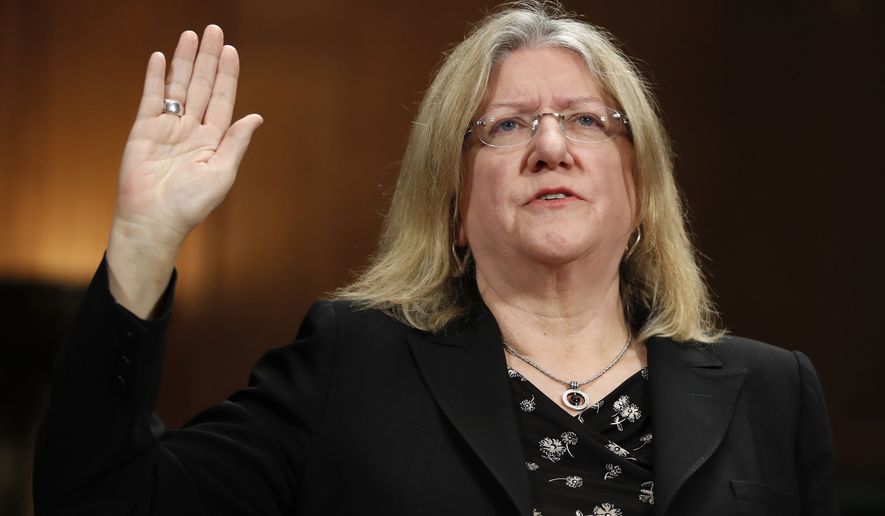OPINION:
Sen. Harry Reid’s legacy as a Democratic majority leader is that he eliminated the Senate tradition of requiring two-thirds of the senators to confirm judicial appointees, making it easier for President Obama to pack the courts with liberal activist judges.
This so-called nuclear option blew up in the faces of the Democrats last year with the election of a Republican president. Now that a filibuster can no longer block President Trump’s conservative court picks, Democrats have few options left, so they’re having to invent one. They’re calling the ratings of judicial nominees by the American Bar Association the “gold standard” for evaluating judicial nominations.
But this gold standard is made of fool’s gold. No one elected the lawyers to pass judgment on a president’s nominations, and no amount of Democratic argument, enthusiasm of left-wing lawyers or alchemy can change that.
“They’ve already deemed four of the president’s nominees to be ’unqualified,’ after eight years of never calling a single Obama nominee unqualified,” Sen. Tom Cotton, Arkansas Republican, observed in a speech this month to the Federalist Society.
One of the four is Leonard Steven Grasz of Omaha, nominated by Mr. Trump for a seat on the 8th U.S. Circuit Court of Appeals in St. Louis. This court hears appeals from a large swath of states in the nation’s midsection stretching from Canada into the South.
The ABA gave Mr. Grasz its lowest rating, “not qualified,” despite his having served for 11 years as chief deputy attorney general of Nebraska. During that time, he litigated cases before the U.S. Supreme Court, the Nebraska Supreme Court and the 8th Circuit Court of Appeals.
In one of those cases, he defended Nebraska’s ban on late-term, partial-birth abortions, which Mr. Grasz’s supporters suspect is the unspoken reason for the negative evaluation. The ABA cited concerns of unidentified colleagues that he would not adhere to judicial precedent.
“In addition, a number of Mr. Grasz’s colleagues expressed the view that, in terms of judicial temperament Mr. Grasz is not ’free from bias.’” They said he would be unable to separate his role as an advocate from that of a judge.
The lawyers’ concern is selective. The ABA had no such qualms about Ruth Bader Ginsburg, who in 1993 was appointed to the Supreme Court by President Clinton. Despite her earlier career as general counsel for the highly partisan American Civil Liberties Union, the ABA gave Mrs. Ginsburg a unanimous “well-qualified” rating, with no discernible concern for whether she would be able to separate her “role as an advocate from that of a judge.”
In an explanatory ratings letter to the Senate Judiciary Committee, the rave review did not mention Mrs. Ginsburg’s ACLU advocacy. In her subsequent quarter of a century on the high court her opinions have been all but indistinguishable from those of the ACLU.
Sen. Deb Fischer of Nebraska, a Republican, told the Senate earlier this month that she was “shocked” by the ABA’s assessment of Mr. Grasz, who she described as “an outstanding Nebraskan and a talented legal mind,” one who had “earned the respect” of the state’s lawyers. Sen. Fischer noted that Mr. Grasz’s ABA evaluators were two Democratic activists.
“This wasn’t an evaluation,” she said. “It was a shameful partisan attack.” She observed that Mr. Grasz had received a strong endorsement from former Sen. Ben Nelson of Nebraska, a Democrat.
“We should just stop pretending that the ABA is a professional organization in this context,” Sen. Cotton told the Federalist Society. “In this context, they are a left-wing ideological enforcer.”
If the opinion of the American Bar Association is a “gold standard,” the association has accomplished what had always been thought impossible, putting a tarnish on gold. The lawyers have rendered themselves unqualified to make unbiased opinions about a president’s choices for judgeships.




Please read our comment policy before commenting.